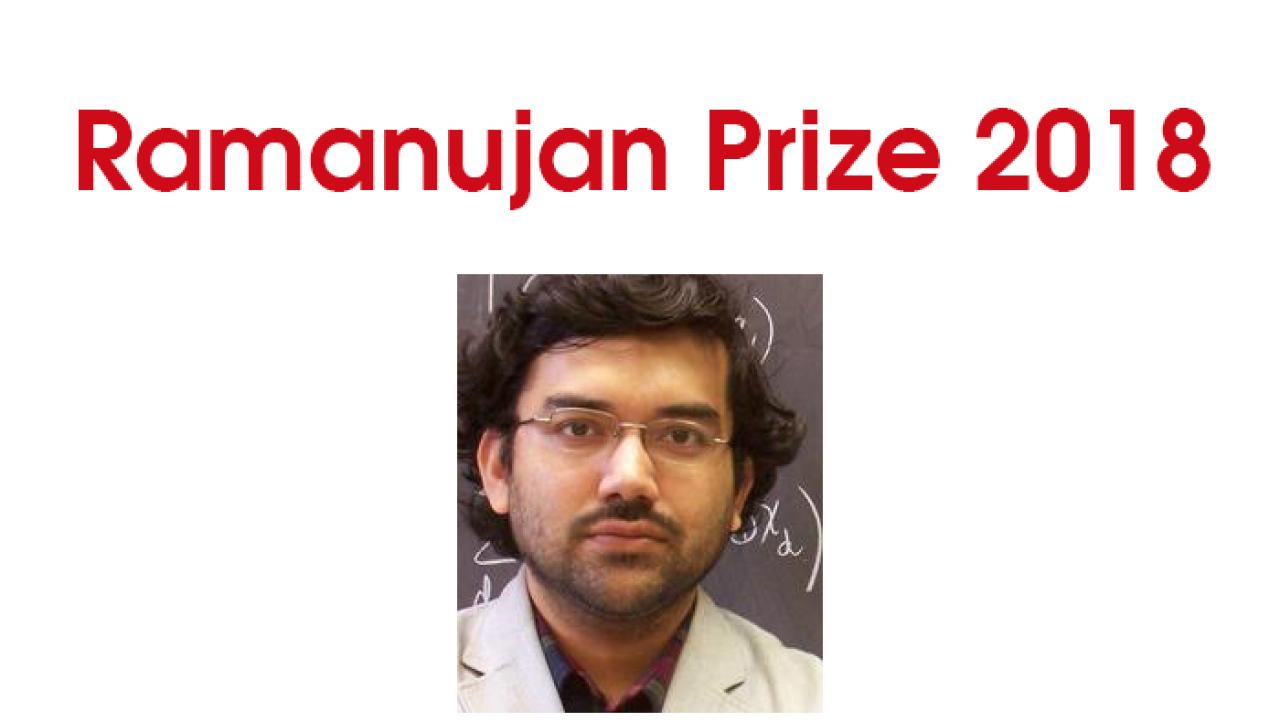
ICTP has awarded the 2018 Ramanujan Prize for Young Mathematicians from Developing Countries to Ritabrata Munshi of the Indian Statistical Institute, Kolkata, India and the Tata Institute of Fundamental Research, Mumbai, India.
ICTP administers the award jointly with the Department of Science and Technology (DST, Government of India), and the International Mathematical Union (IMU).
The prize is in recognition of Munshi's outstanding work in number theory, a branch of pure mathematics that studies properties of integers, or numbers that do not have a fractional part. In particular, the Prize cites Munshi's profound contributions to the study of analytic properties of L-functions and automorphic forms. The focus of his work is central to modern number theory, one that links arithmetic geometry, representation theory and complex analysis in many profound ways. Munshi has developed an ingenious method which produced a breakthrough in the field, going significantly beyond what was known before.
Ritabrata Munshi pursued his doctoral studies at Princeton University in the US with Sir Andrew Wiles. After receiving his PhD he spent a few post-doctoral years in the US before returning to India to join the Tata Institute of Fundamental Research. He is currently at the Indian Statistical Institute, Kolkata. He has received many awards for his work, including the Infosys Science Foundation's 2017 award in mathematical sciences, the Birla Science Prize (2013), Shanti Swarup Bhatnagar Prize (2015), and the ISI Alumni gold medal. Munshi was elected a Fellow of the Indian Academy of Sciences in 2016.
The selection committee consisted of Rajendra Bhatia, Alicia Dickenstein, Stefano Luzzatto (chair), Philibert Nang and Van Vu.
The Ramanujan Prize is awarded annually to a researcher from a developing country who is less than 45 years of age on 31 December of the year of the award, and who has conducted outstanding research in a developing country. Researchers working in any branch of the mathematical sciences are eligible.
















